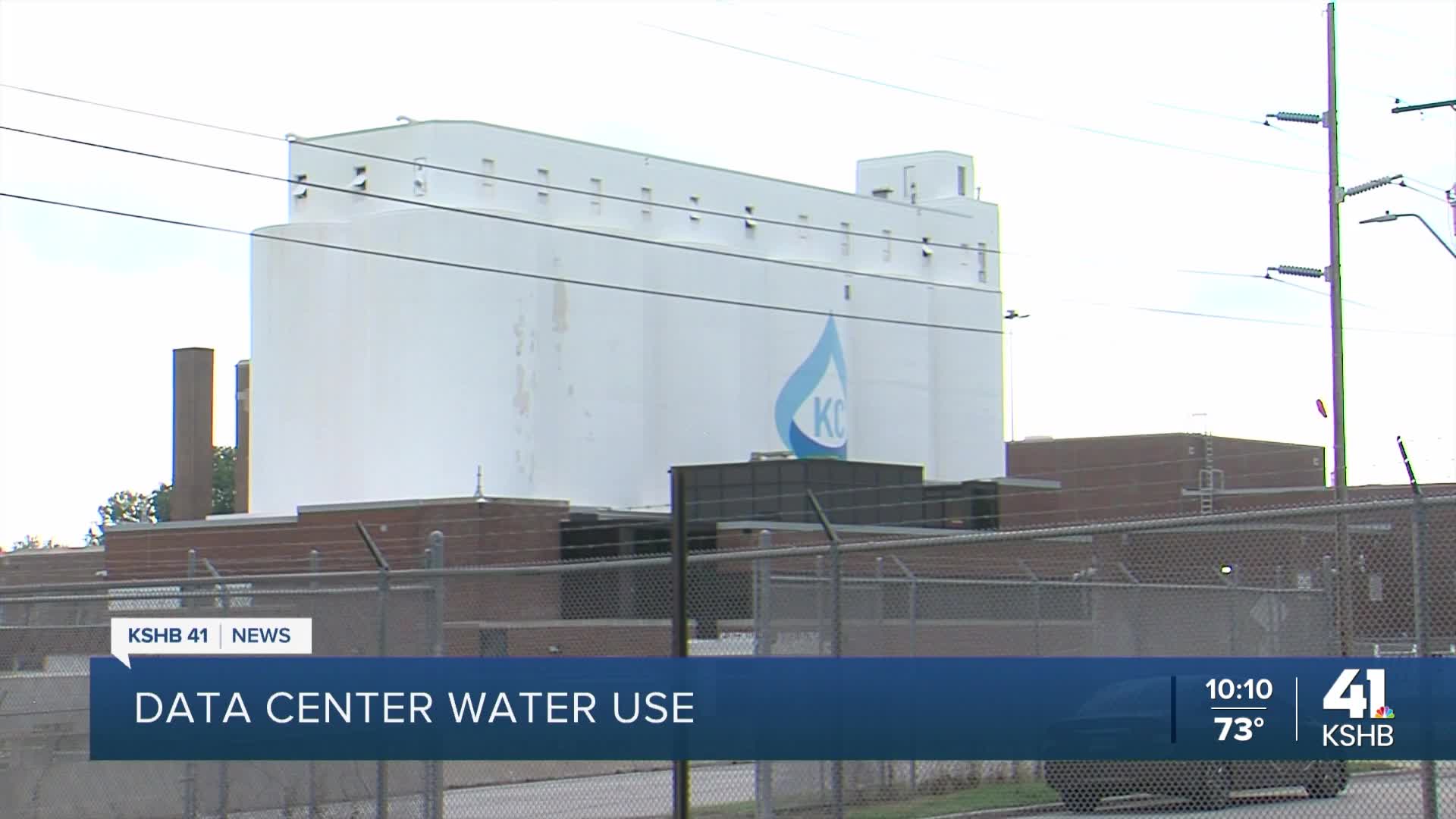KSHB 41 reporter Isabella Ledonne covers issues surrounding government accountability, solutions and consumer advocacy. Share your story with Isabella.
Port KC approved a $10 billion bond for a 500-acre data center in Kansas City's Northland and is taking steps for a separate data center proposal near KCI.
It's been reported that Project Mica would be Google's second data center in the metro, with the first already under construction near Worlds of Fun. Meta's data center in the Northland is also well underway.
We've been covering these multi-billion-dollar developments as part of our Data, Dollars and Demand series. The massive tech institutions usually consist of several buildings and take up several hundred acres.
Inside, you'll find computers, servers and cooling systems to house all the information you use on your phone and computer.
Artificial intelligence has been pushing the demand on data centers, requiring larger servers and energy usage, and therefore more development.
Kansas City, Missouri, is updating its long-term comprehensive plan to account for the data center boom by clearly defining zoning requirements for large-format uses.
"It really sets the vision for the city in the next 20 years," Jennifer Reinhardt said.
City planners like Reinhardt want to hear Kansas Citians' voices on data center zoning through the city's new platform, SpeakEasy.

"Add comments, ask questions," Reinhardt said. "We don't have a definition, we don't have regulations [for data centers]. This project is going to look at starting with that."
Kansas City has seen an increase in data center applications over the last few years, prompting city staff like Reinhardt to take a closer look at how the multi-billion-dollar developments could impact neighbors in residential communities.
"The new regulations would have a specific path for data centers to follow," Reinhardt said. "It might be different than what is currently on the books."
One of the concerns with data centers is the demand they place on the city's energy and water systems.
Dr. Yury Dvorkin is an expert on data centers' utility usage. He works as an associate professor of electrical and computer engineering at Johns Hopkins University. His work focuses on developing models to help communities accommodate smart grid technology challenges.
"The more [utility] load you have, regardless of the nature of this load, the more burden you impose on infrastructure," Dr. Dvorkin said.
Data centers are expected to use 20,000% more electricity than the average home, and almost six million times more daily water than the average residence.
Dr. Dvorkin explained it's hard to tell that those predictions will impact Kansas City since the data centers are years away from being completely built.
"When the supply is not able to satisfy the demand, you see an unavoidable price grow," Dr. Dvorkin said.
Missouri offers several incentives to data centers for development, including being exempt from sales tax on equipment. The lower cost of land and utilities is another incentive for companies to look at development in the Midwest.
Kansas City is accepting feedback and comment on updating its zoning regulations in the comprehensive plan until Fall 2025.
KSHB 41 reporter Isabella Ledonne sat down with one of the city's water engineers to talk about the impact data centers could have on water service and customer bills at home. That's coming up in the next part of our Data, Dollars and Demand series this week.





